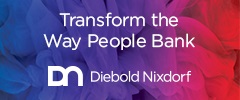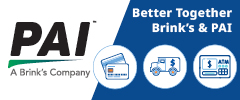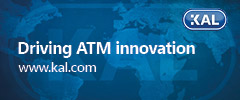
Access to cash is vital in laying the groundwork for financial inclusion.
Sunday, March 17, 2024
View ShowroomFinancial inclusion serves as the foundation for both a just, equitable society and a flourishing economy. By enhancing financial inclusion and broadening access to finance, we can significantly contribute to economic development, facilitate social mobility, and ensure that a vast number of individuals can fully and actively participate in economic activities.
The United Nations defines financial inclusion as ensuring universal access to a variety of financial services at reasonable costs, provided by sustainable institutions. The primary obstacle cited by the financially excluded for not having a bank account is insufficient funds. Other barriers include residing in underserved rural areas, lack of identification, and financial illiteracy. Moreover, over 200 million small businesses lack access to essential banking services and financing.
excluded for not having a bank account is insufficient funds. Other barriers include residing in underserved rural areas, lack of identification, and financial illiteracy. Moreover, over 200 million small businesses lack access to essential banking services and financing.
Approximately 2 billion adults globally reside without access to a bank account, rendering them financially vulnerable and reliant on cash for survival. In efforts to combat this financial exclusion, cooperation among policymakers, financial institutions, NGOs, and private sectors is imperative, with special attention directed towards the needs of affected communities. Cash remains indispensable during the transition towards financial inclusion.
Despite considerable progress towards enhancing financial inclusion—illustrated by World Bank statistics revealing that 69% of adults globally possess a transaction account—approximately one-third of adults, totaling about 1.7 billion individuals, still lack access to banking services, as reported in its latest Findex Report.
Furthermore, the report underscores the challenges encountered by women. Despite advancements in financial inclusion overall, the gender disparity in account ownership has endured, remaining at nine percentage points since 2011.
The approach to financial inclusion has transitioned from finding solutions for general problems to addressing specific needs of distinct communities. To support financial inclusion, countries need to develop strong fintech ecosystems, which help to make financial services more accessible to an increasing number of people. Traditional financial institutions often fail to reach rural or remote populations due to infrastructural limitations, but mobile payment systems like M-Pesa in Kenya and expanded ATM networks offer promising solutions.
Cash is vital in aiding the financially illiterate, serving as a tangible means of value measurement for households and businesses. Financial exclusion exacerbates social marginalization, making cash an essential tool for inclusion efforts.
Cash's universality, acceptance, and simplicity make it indispensable despite the rise of digital payment systems. Even systems like M-Pesa, while expanding access, complement cash rather than replacing it.
Efforts in various countries demonstrate the potential of cash-friendly initiatives in promoting inclusion. Cash reinjects value into local economies, empowering individuals and businesses to allocate resources efficiently.
The advent of digital payments has placed significant pressure on cash and its associated infrastructure. Initially, bank branches closed as online banking gained traction, and now ATMs are shutting down at an unprecedented rate. LINK's initial response to safeguard ATMs through a financial inclusion subsidy has partially alleviated the impact on communities. However, recent research suggests the necessity for more radical changes. For instance, the Access to Cash Review underscores the importance of preserving universal access to cash and advocates for transforming the UK's wholesale cash infrastructure into a public utility to reduce costs and ensure sustainability. While we agree with this principle, we acknowledge the importance of assessing the distribution of cash infrastructure across urban areas before implementing policies.
Cash remains vital for numerous individuals excluded from mainstream financial products, those wary of digital services, or those who rely on cash for budget management. Our research underscores how the unequal distribution of cash infrastructure disproportionately affects those reliant on it. Further reduction or concentration of cash infrastructures will widen the gap between those in need of cash and those with easy access to it.
In conclusion, cash and digital systems should complement each other in the pursuit of financial inclusion, ensuring flexibility and dignity for those in need while maximizing value for communities worldwide.
Additional Resources from ATM Industry Association
- 4/26/2024 - Time to Take Action! Support the Crime Bill - We Need You!
- 4/23/2024 - ATMIA Unveils Strategic Collaboration with Reconnaissance International to Elevate Intelligence & Networking Services to the ATM & Currency Industries
- 4/21/2024 - Fight Against Cashless Economy:
- 4/18/2024 - 3 myths about accepting cash at self service
- 4/18/2024 - Upcoming ATMIA/ASA Committee Meetings: April and May 2024
- Show All ATM Industry Association Press Releases / Blog Posts



























